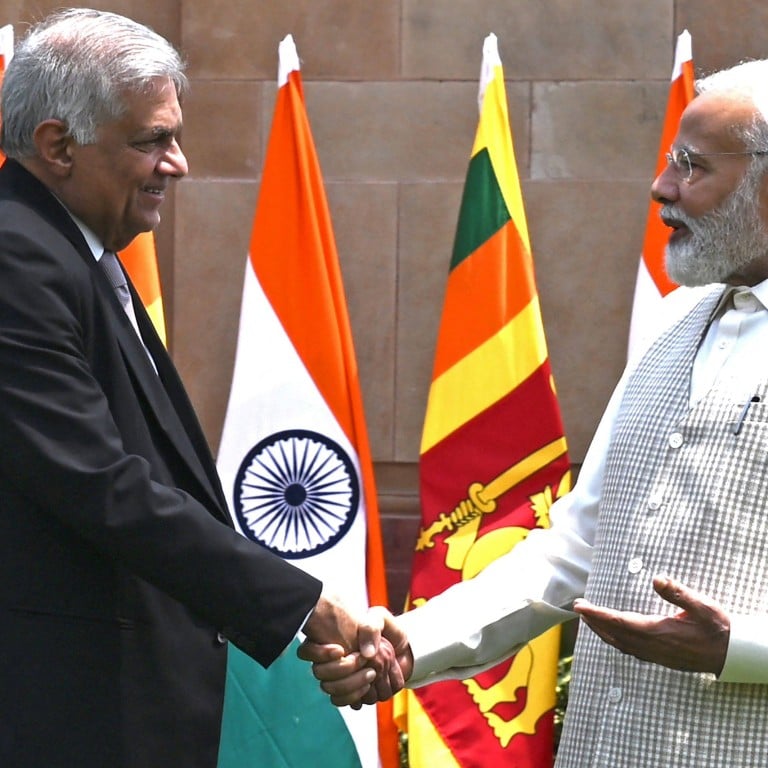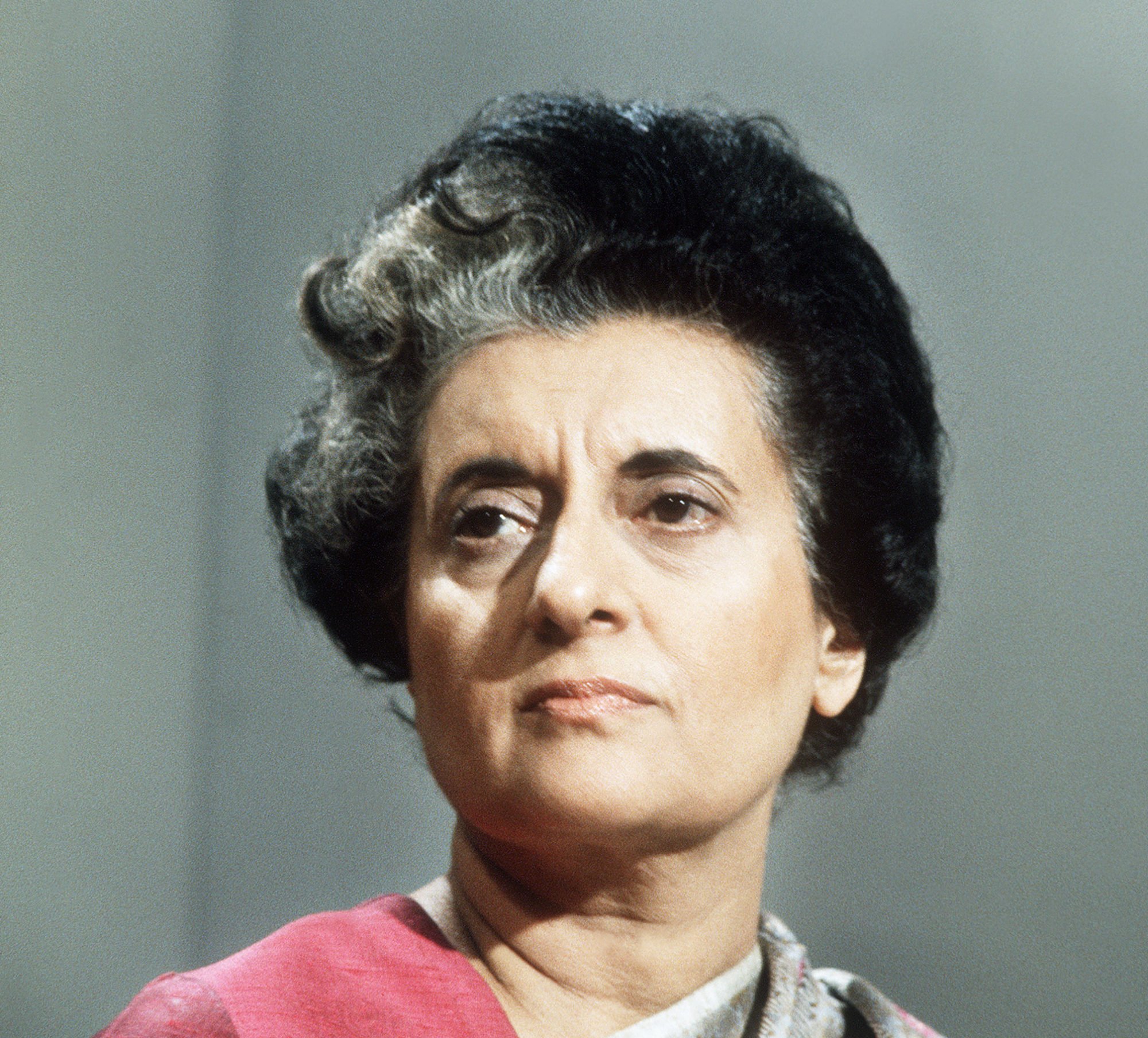
Is India PM Narendra Modi’s claim over a tiny Sri Lanka island an election ploy?
- Modi has denounced the opposition Congress Party for ‘callously giving away’ the island of Katchatheevu to Sri Lanka in a 1974 agreement
- Critics have warned against nullifying the agreement, saying that it would lead to a row with Sri Lanka and dent India’s reputation
The row over the island of Katchatheevu, which is under Sri Lanka’s administration, could also potentially harm bilateral relations, Modi’s political opponents and analysts said.
Katchatheevu is located between a district in the Indian state of Tamil Nadu and another island in northern Sri Lanka.
“Eye-opening and startling! New facts reveal how Congress callously gave away Katchatheevu …. weakening India’s unity, integrity, and interests has been Congress’ way of working for 75 years and counting,” Modi tweeted on Sunday.
On Monday, India’s External Affairs Minister S Jaishankar backed Modi’s assertion at a news conference, alleging that the Congress government under then PM Indira Gandhi “ceded” Katchatheevu to Sri Lanka under a 1974 agreement and withheld the information from the public.
Since coming to power in 2014, the ruling Bharatiya Janata Party (BJP) has faced numerous criticisms for exploiting religious and border issues during election periods to win the support of Hindu voters.
The latest controversy arose after Tamil Nadu President and key BJP member K. Annamalai applied to receive information about the legal status of Katchatheevu through the Ministry of External Affairs’ historical records.
Based on the information, Annamalai claimed that Congress and its ally Dravida Munnetra Kazhagam, a political party in Tamil Nadu, collaborated to “give away” Katchatheevu to Sri Lanka based on the agreement on maritime boundaries in the Palk Strait, where the island is located. He had made similar claims over the years.
Several Indian politicians and analysts have warned against invalidating the agreement. Apart from a potential spat with Sri Lanka, other countries could also cast doubts about India’s commitment to honour any other bilateral agreement it had signed, they said.
‘Extremely dangerous’: India lambasted for deporting Rohingya to Myanmar
In particular, they questioned S. Jaishankar’s remarks on the “ceding” of Katchatheevu as past Indian parliamentary sessions and legal submissions did not mention any such outcome under the 1974 agreement.
Senior Congress leader P Chidambaram warned in a statement that the “untruthful and belligerent” comments by BJP leaders on Katchatheevu could lead to a confrontation between the Sri Lankan government and the 3.5 million Tamils living in the region, and strain relations between Delhi and Colombo.
Chidambaram slammed the BJP and Jaishankar for their double standards regarding India’s territorial dispute with China over the Ladakh area. He said China had renamed villages and landmarks in Ladakh but the BJP government has not been assertive in pressing India’s claims to the territory.
Fanning ‘hysteria’ over island
On Wednesday, Sri Lanka’s Foreign Minister Ali Sabry said in a TV interview that Colombo does not see a need to reopen talks with India over Katchatheevu.
“This is a problem discussed and resolved 50 years ago and there is no necessity to have further discussions on this. I don’t think it will come up,” he said.
Ashok K. Kantha, a former Indian ambassador to China, told This Week in Asia that Sri Lanka is aware that India is in the midst of election season and there is no suggestion that India is changing its position on the agreement.
As Myanmar’s civil war halts India-funded project, will China take advantage?
“I don’t think they will be too concerned about even earlier statements where there was a resolution [in India] calling for the retrieval of Katchatheevu, it didn’t create any serious ripples in Sri Lanka,” Kantha said.
Ajay Gudavarthy, an associate professor at Jawahar Nehru University, told This Week in Asia that the BJP typically used strategies to “generate hysteria, often through bizarre claims” before elections.
For instance, during an election in Karnataka in May last year, Modi had accused the Congress party of pushing for the southwestern state to secede from India, Gudavarthy said. “Nothing can be more bizarre than a statement of that kind,” he added.
The BJP is hoping that Katchatheevu could serve as a rallying point for the party to form new alliances, according to Gudavarthy, adding that the issue is unlikely to have a big impact in Tamil Nadu at the upcoming election.
“The BJP has struggled to find an issue to mobilise around, particularly with the changing political dynamics in Tamil Nadu,” Gudavarthy said.
The potential diplomatic fallout with Sri Lanka is a greater concern if India were to continue questioning Katchatheevu’s legal status, he added.

Katchatheevu’s recent history
India and Sri Lanka have laid claim to Katchatheevu since at least 1921, following a survey that placed the island within Sri Lanka’s boundaries. Despite efforts to resolve the dispute, it persisted in the years after both countries’ independence.
Located some 33km from the Rameswaram district in Tamil Nadu, the uninhabited island measures 1.6km in length and just 300 metres at its widest point. A landmark on the island is the 120-year-old St Anthony’s Church, which attracts devotees from India and Sri Lanka for an annual festival.
In 1974, Gandhi signed an agreement on behalf of the Congress government with Colombo to recognise Sri Lanka’s ownership of Katchatheevu.
Indian fishermen were granted access to Katchatheevu as part of their fishing activities and could take part in the annual St. Anthony’s festival.
The agreement, however, did not specify the fishing rights of Indian fishermen. Fishermen from Tamil Nadu often clashed with Sri Lanka’s navy over disputed fishing zones.
Multiple petitions have been filed and letters to the Prime Minister’s Office (PMO) have been submitted by Tamil Nadu’s political leaders challenging Gandhi’s decision.
In a hearing before the Supreme Court in 2014, India’s Attorney General Mukul Rohtagi dismissed the claims in the petitions and said: “Katchatheevu went to Sri Lanka by an agreement in 1974 … How can it be taken back today? If you want Katchatheevu back, you will have to go to war to get it back.”

